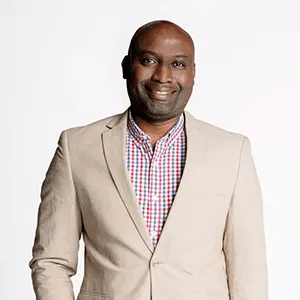How to Diffuse Conflict With Your Partner

|
Getting your Trinity Audio player ready...
|
If you’ve ever asked yourself how to diffuse conflict with your partner, you’re not alone. Arguments are one of the most common struggles in relationships, yet few couples are ever taught how to handle them constructively.
Dr. Carlos Todd, conflict resolution specialist, explains that conflicts do not have to be destructive. With the right tools and mindset, couples can transform arguments into opportunities for growth.
“Learning these skills to fight fair is really an essential set of strategies in order to improve your relationship,” he says.
This blog explores Dr. Todd’s approach from Conflict TV and expands on it with practical tools, research, and examples so you can handle conflict in healthier ways.
Common Triggers of Relationship Conflict
Most couples fight over predictable issues: money, household responsibilities, intimacy, parenting, or how much time is spent together versus apart. By recognizing these triggers early, you can prepare to approach them with calm instead of frustration.
Arguing Constructively
Disagreements don’t have to be destructive. The goal isn’t to avoid conflict but to argue in a way that respects both partners. That means avoiding name-calling, sticking to the issue at hand, and focusing on solutions rather than blame.
Staying Calm During Arguments
Learning how to diffuse conflict with your partner starts with staying calm. Simple tools help:
- Step back and take a short break if emotions rise.
- Practice slow breathing before responding.
- Remind yourself that your partner is not your enemy.
- Focus on lowering your voice instead of raising it.
The Power of Active Listening
Many fights escalate because neither person feels heard. Active listening, which involves repeating back what your partner says and validating their feelings, shows respect and de-escalates tension quickly. Sometimes, just feeling understood is enough to end an argument.
Ways of Diffusing Conflict With Your Partner
Before the Conflict: Create a Fight Plan

One of the most important lessons in conflict resolution is preparation. As Dr. Todd explains, every couple should have a fight plan – a set of rules and agreements about how to handle arguments.
This might include:
- What to do if one partner raises their voice.
- How to respond when personal space feels invaded.
- Signals to use when a boundary has been crossed.
A fight plan makes it easier to handle conflict in real time because both partners already know the rules of engagement.
According to the Gottman Institute, couples who develop conflict rituals are over 60% more likely to repair disagreements quickly. This shows the power of planning before emotions run high.
During the Conflict: Stay Calm
Dr. Todd admits that staying calm during conflict is easier said than done. “It’s hard to remain calm when that person is saying something to me that I don’t like… I feel like I need to defend myself. That’s true, but it has to be managed,” he explains.
Remaining calm doesn’t mean suppressing feelings. It means practicing self-regulation. Tools that help include:
- Deep breathing to calm your nervous system.
- Pausing before responding.
- Grounding exercises to reduce stress hormones.
This is a key step in how to communicate with your partner without fighting. Staying calm makes it possible to listen, not just react.
Listen and Clarify
Listening is not about waiting for your turn to speak. It’s about making sure you understand what your partner is really saying.
Dr. Todd stresses the importance of clarification: partners often hear things incorrectly during fights, which makes arguments escalate. Saying, “What I hear you saying is…” can prevent unnecessary misunderstandings.
This step is vital if you want to know how to resolve conflict in a relationship rather than let it spiral into resentment.
After the Conflict: Take Space and Reconnect
Even with the best intentions, conflicts can leave partners feeling hurt. What matters most is what happens next.
Dr. Todd advises that if you need space, communicate clearly:
- Tell your partner you need a break.
- Specify how long: 30 minutes, an hour, or a day.
- Decide how you’ll reconnect: writing, talking, or meeting in a neutral space.
“Let your partner know, look, I may not have been comfortable with what you said to me. I need a little time and space,” Dr. Todd explains.
The goal is to prevent unhealthy conflict in relationships, where silence and avoidance drag on for weeks. Research shows couples who let conflicts go unresolved may lose up to a year of communication over a decade due to days spent not speaking.
| Technique | Pros | Cons |
|---|---|---|
| Time-outs | Prevents escalation | Can feel like avoidance if never revisited |
| Active listening | Builds empathy and trust | Requires patience |
| Humor/lightening the mood | Breaks tension quickly | Risk of minimizing serious issues |
| Counseling | Professional tools and support | Requires commitment and cost |
Turning Conflict Into Connection

Conflict doesn’t have to weaken your bond. With the right tools, it can deepen intimacy.
This is where structured programs like:
- The F.I.G.H.T. Plan: A Revolutionary Couples’ Communication and Conflict Resolution Workbook
- The F.I.G.H.T. Plan – Couples Conflict Toolkit
…can help partners learn to express needs, de-escalate tension, and repair faster. These tools turn arguments into opportunities, truly turning conflict into connection.
For couples already struggling with additional challenges – like needing to help a partner with depression or trying to convince a spouse to take a marriage course – these resources can make conversations less threatening and more collaborative.
Why Ignoring Conflict Is Dangerous
Many couples fall into the trap of silent treatment. They stop talking for days or even weeks after fights. But silence is not neutral — it is harmful.
Dr. Todd explains that unresolved conflict floods your body with stress hormones. Over time, this takes a toll on physical health and emotional closeness.
Ignoring conflict may feel easier in the moment, but it leads to resentment and disconnection. Learning how to defuse an argument quickly and respectfully protects both your health and your relationship.
Setting Healthy Boundaries
Another part of learning how to diffuse conflict with your partner is boundary-setting. Boundaries might mean agreeing not to yell, refusing to tolerate disrespect, or deciding certain times are off-limits for arguments (like bedtime or before work). Clear rules prevent fights from turning toxic.
When Professional Help Is Needed
If arguments are constant, escalate into hostility, or never get resolved, outside help is valuable. Couples therapy provides structured communication tools. You can search directories like Psychology Today or explore workshops at Couples Fight School.
Conclusion: Build Conflict Resolution Skills Together
Knowing how to diffuse conflict with your partner is not about avoiding arguments; it’s about learning to handle them in healthier ways.
By creating a fight plan, staying calm during disagreements, listening carefully, and reconnecting after conflict, couples can strengthen their bond instead of weakening it.
With resources like The F.I.G.H.T. Plan: A Revolutionary Couples’ Communication and Conflict Resolution Workbook and private coaching programs, you and your partner can transform even the toughest conflicts into opportunities for connection.
FAQs
1. What is the first step in diffusing conflict with your partner?
Creating a plan for conflict before it arises helps you both know how to handle it.
2. How do I stay calm in an argument?
Use deep breathing, pausing before speaking, and grounding exercises to lower stress levels.
3. What if my partner shuts down after conflict?
Communicate your need for space and agree on when and how you’ll reconnect.
4. Can conflict ever be healthy in relationships?
Yes. When managed well, conflict can bring clarity, growth, and deeper intimacy.
5. What tools help with couples conflict resolution?
Resources like The F.I.G.H.T. Plan – Couples Conflict Toolkit or marriage courses provide step-by-step strategies.
References
- The Gottman Institute. (n.d.). About / Research. Retrieved from https://www.gottman.com/about/research/ The Gottman Institute
- Psychology Today. (n.d.). PsychologyToday.com. Retrieved from https://www.psychologytoday.com/ Psychology Today+1

